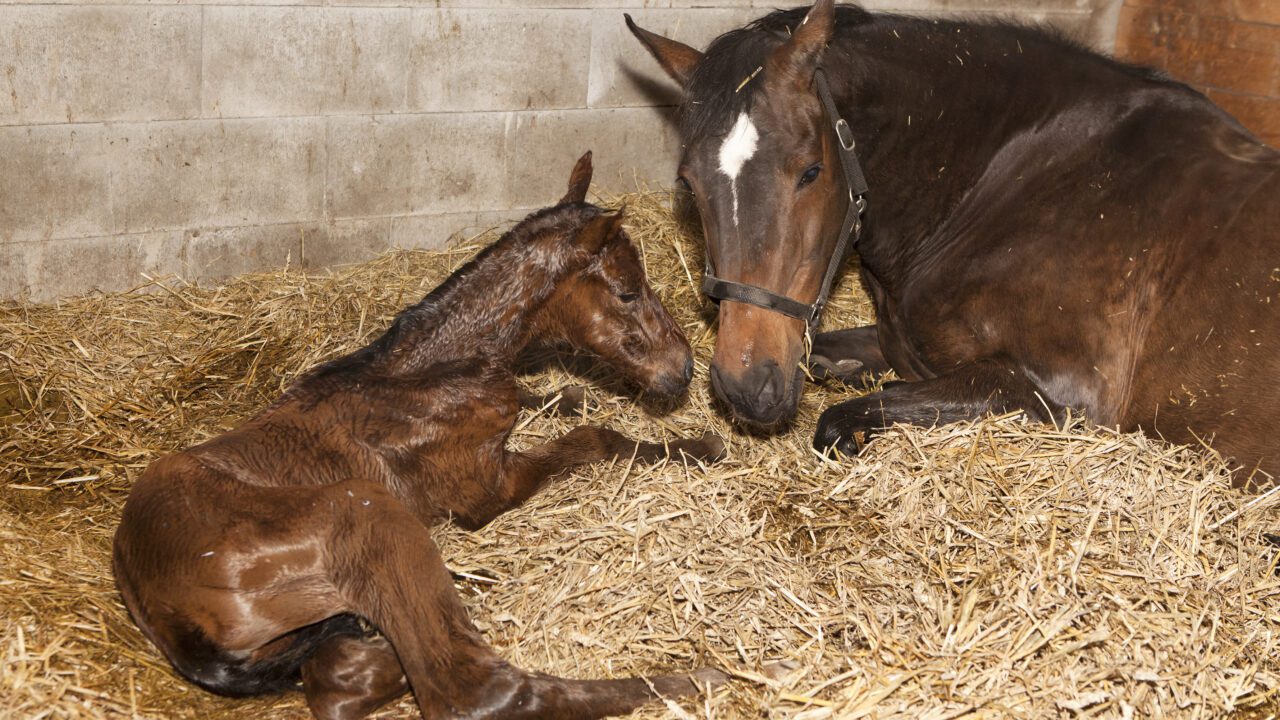Meconium Retention
Meconium is a newborn foal’s first manure and is composed of intestinal secretions and fluid ingested by the foal while in utero. Meconium can range from firm pellets to pasty consistency and is typically dark brown, black or green in colour looking more like dog poo than horse poo. Meconium is generally passed within the first 3-4 hours of birth. If it is not passed in the first 24 hours of birth it is considered impacted or retained.
Signs of meconium impaction can occur up to 3-4 days after birth. Clinical signs that may indicate a foal has retained meconium include:
- Straining to defecate/ “constipated”
- tail lifting / tail flagging
- restlessness
- increased heart rate
- abdominal distension
- rolling / colicky
- lying upside down
- abnormal stance
- hunched back
- The discomfort can lead to foals being depressed and reluctant to nurse. This is a vicious circle as the mare’s milk is a natural laxative and failure to suck leads to the meconium becoming more concreted and difficult to pass.
Meconium impaction can occur in any foal, however is more frequently seen in males. Foals may also be predisposed if they are weak or dysmature foals (pre-mature or post-mature). As foals may have not had adequate nursing they are also at risk of failure of passive transfer and it is recommended that an IgG test is performed.
Diagnosis may be made by history of failure to defecate. Meconium may be able to be felt on gentle rectal examination, however radiographs or ultrasound may be required if there impaction is more proximal, in the large colon.

